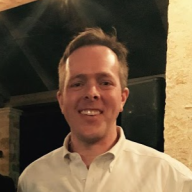
Stuart Buck
Bio
I lead a small think tank dedicated to accelerating the pace of scientific advancement by improving the conditions of science funding. As well, I'm a senior advisor to the Social Science Research Council. Prior to these roles, I spent some 9 years at Arnold Ventures (formerly the Laura and John Arnold Foundation) as VP of Research.
How I can help others
Science policy, reproducibility, and philanthropy.
Posts 6
Comments83
I don’t think Moravec’s paradox is a real paradox in the first place. The reason we think of activities like walking, using your hands, being able to speak language, etc. as easy is because we don’t have any long-term memories from the first few years of life when we had to figure all of that out from scratch. https://x.com/stuartbuck1/status/1798547161489231928
"One-on-one (1:1) meetings are widely recognized as one of the most valuable aspects of EA Global (EAG) and EAGx conferences"
Speaking just for myself, the shift to endless one-on-one meetings is the single biggest reason I have no desire ever to attend another EA conference. [I've been to the following: EA Global 2015 at Google (no Swapcard or one-on-ones there), EA Global in DC 2022, and EA Global Feb. 2024]
There are pros and cons.
Pros:
- More social and technological affordances for meeting up with new people
Cons: You list lots of ways one-on-ones can go wrong, but there are many more.
- There is high variance in whether conversations are useful/pleasant. There are lots of people that I'd like to talk to for 2-5 minutes just to meet them and assess whether we have enough in common to continue further. But if they've scheduled a 25-minute 1-on-1 with me, it feels really awkward to end things after 2 minutes. And the same is true vice versa, I would have to assume.
- Speaking of brand-new forms of social awkwardness, one-on-one meetings manage to create yet another one. In any normal social setting, if you see an old friend casually chatting with someone, you can go up and say "hi" and then be introduced to their conversational partner and it turns into a group conversation. In a setting dominated by scheduled one-on-ones, going up and saying "hi" to an old friend can be met with a stern, "Sorry, we're having a one-on-one." Ridiculous.
- The dominance of one-on-ones takes people away from enjoying common experiences that would be much more valuable for 95% of them than any random one-on-one. At the last EA conference I went to, Patrick Collison and Alexander Berger had an onstage debate of sorts about EA. At a normal conference, this would be a standing-room-only event, and everyone afterwards would have a shared experience to talk about. [And, while they weren't obvious about it, Dustin Moskovitz, Cari Tuna, and Joseph Gordon-Levitt were all in the crowd.] At this conference, the room wasn't even full, because the vast majority of attendees were off having some one-on-one that was almost guaranteed to be more uninteresting than hearing Patrick Collison's thoughts. What? Dustin Moskovitz thinks it is worth his time to spend an hour listening to a fascinating conversation, but you're off having a one-on-one with some random person who you likely won't even remember the next day?
- Non-stop one-on-one conversations are way more mentally exhausting than any other normal conference I've ever been to. Part of this is connected to Con #1 above -- some people are difficult to talk to for the full time. That could be the fault of either of us, to be sure, but it is nonetheless tiring to have to carry the conversation for the whole time. At any normal event, you can just make a polite excuse after a minute, "Sorry, I need to use the restroom," or "hey, I just spotted someone across the room," or whatever.
For me, the net value is overwhelmingly negative.

Not sure if this is responsive, but while most people (barring disability) do reach a decent level of proficiency at navigating the world, I think the variance can still be huge. Look at the feats of Olympic gymnasts or professional basketball players--hardly anyone could reach that level no matter how much they trained.